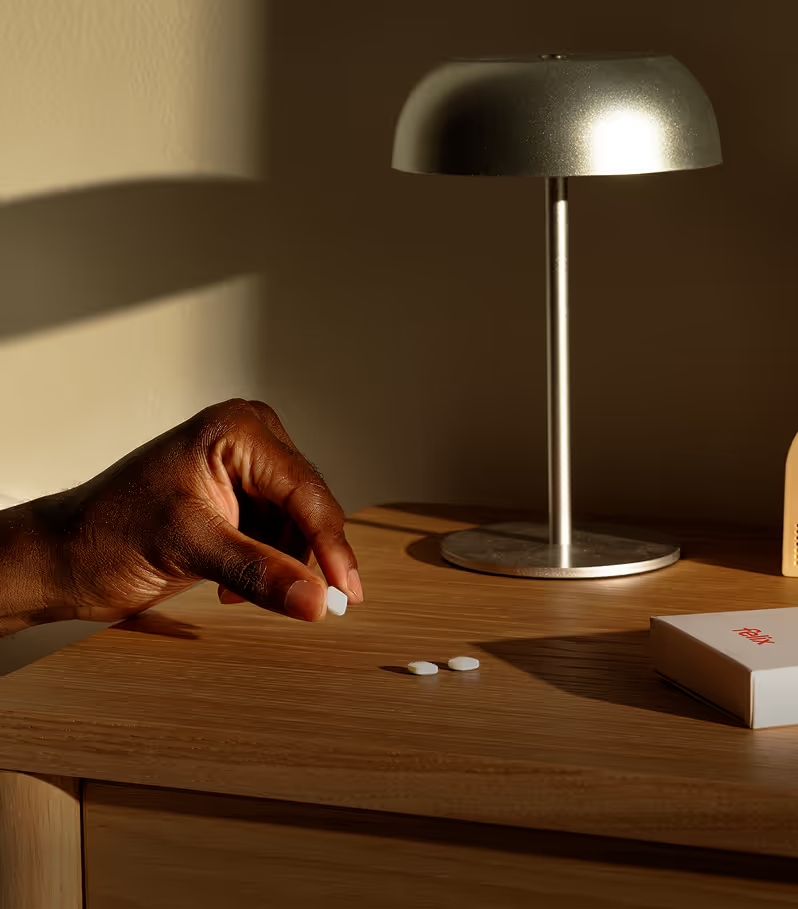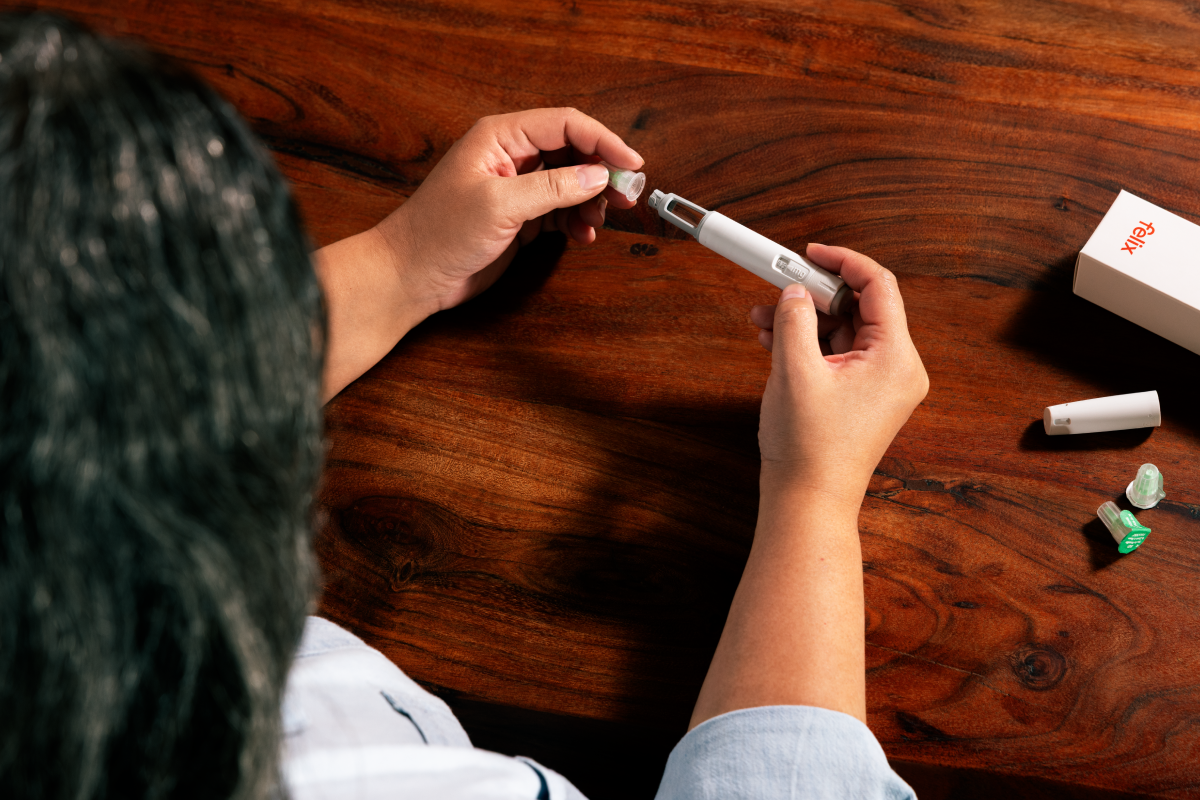Download the Felix App
Earn reward, visit our shop and get exclusive offers on the app
Download nowEarn reward, visit our shop and get exclusive offers on the app
Download nowPut your health first in 2026 with free visits on all categories, and $200 off longevity testing.
Download nowPut your health first in 2026 with free visits on all categories, and $200 off longevity testing.
Download now
AI-generated summaries may be inaccurate and do not constitute medical advice. Third-party AI tools are not under Felix's control, and your use of them is at your own risk.
When it comes to our bodies, most of us tend to focus on things like losing weight or building muscle, rather than the health of our bones. After all, our bones are tucked away inside us, and we can’t easily see them or measure their health on a daily basis.
But here's the thing: the health of our bones is crucial for our overall well-being. And when it comes to our body weight, there are some interesting things to consider when it comes to bone density.
Simply put, bone mineral density (BMD) is a measure of how dense your bones are. That’s unsurprising, given the name. But here’s a more detailed explanation.
BMD measures the amount of minerals, such as calcium and phosphorus, in a specific area of bone. It's typically measured using a special X-ray called a dual-energy X-ray absorptiometry (DXA) scan, which produces what is known as a “BMD score.” This score is then compared to the average BMD score of a healthy young adult of the same sex to determine if someone has normal, low, or high bone density.
Bone mineral density is important because it gives us an indication of how strong our bones are. Ultimately, strong bones are crucial for our overall health and well-being. They provide support for our bodies, protect our vital organs, and allow us to move and stay active.
If your bones are denser, they’re generally stronger and less likely to fracture. If your bones are less dense, however, they’re generally weaker and more prone to fractures. One of the primary reasons to check BMD is to screen for a condition called osteoporosis.
Osteoporosis is a disease that weakens bones, making them more fragile and easier to break. Osteoporosis risk increases with age, so it primarily affects the elderly. It's often called the "silent disease" because there are usually no symptoms until a fracture occurs (usually in the wrist, hip, or vertebra). And unfortunately, it’s rare to regain bone mass once someone has osteoporosis. Treatment of osteoporosis is aimed at slowing or stopping bone loss.
By checking for bone mineral density, we can identify people who may be at risk for osteoporosis and take steps to prevent or treat it. For example, lifestyle changes like regular weight-bearing exercise, a balanced diet, and avoiding excessive alcohol consumption and smoking can help maintain bone health. In some cases, medications may be prescribed to help prevent or slow bone loss.
Yes, BMD is directly associated with your body weight, but only to a small degree. Generally speaking, the lower your weight, the lower your bone density, but it isn’t always that simple.
BMI is a measure of body size based on height and weight, and it's commonly used to screen for overweight and obesity. Since bone is denser than muscle, connective tissue, and fat, people with higher bone density may have a higher BMI than someone with lower bone density, even if they have the same amount of other body tissues. Many other factors like amount of muscle mass and overall body composition are a few of the many other things that play a role in a person's overall health.
Yes, but like BMI, a person’s body weight, regardless of if it’s caused by denser bone or something else, is not a significant indicator of a person’s health. Bones in general are not a significant part of our total body weight, even though denser bones can weigh more than less dense bones.
However, we shouldn’t conclude that a denser or thicker bone is a bad thing. The amount of weight contributed by bones is relatively small compared to other parts of the body. Additionally, having denser bones can have other health benefits, such as reducing the risk of fractures.
Sometimes. For many people, as they get older, they lose bone density. For some people, when this occurs they may have physical limitations. For example, if a person is not able to engage in weight-bearing exercise, they may have difficulty maintaining muscle mass and engaging in other healthful activities.
People with osteoporosis may be more likely to experience pain and discomfort, which can make it harder to stay active and maintain a healthy weight. Studies have shown that, unfortunately, exercise as an intervention for people suffering from osteoporosis results in poor adherence rates.
Yes. Beyond its impact on weight, bone density is important for overall health. Because low bone density can be a sign of osteoporosis, you can find yourself fracturing your bones even with very little impact. This is usually only the case in elderly patients, since osteoporosis is predominantly present in the elderly.
A simple fall from a standing position can result in a hip fracture for an older person. Hip fractures are particularly serious and can lead to mobility loss and a loss of independence.
Yes, but higher bone density is rarely of any significance when it comes to your weight or body size. This is because bones only make up a small percentage of total body weight, typically around 15-20% for adults. It’s important to remember that body size and weight doesn’t determine your level of health.
One study from Harvard University found that the skeleton makes up 14.84% of a person's body weight. Whereas, by contrast, skeletal muscle constitutes around 40% of your total body weight.
Denser bones (unsurprisingly) do weigh slightly more than less dense bones, but it isn’t significant in and of itself. Someone with higher bone density may weigh slightly more than someone with lower bone density (even if their muscle or fat levels are similar or the same). But this is unlikely to be of any significance when someone is looking at their body size or their number on a scale.
It’s important to note that while higher bone density may contribute to slightly higher weight, at the end of the day, strong bones are absolutely essential for maintaining mobility, preventing fractures, and supporting overall physical function.
Yes, but not in all cases. A person with low bone density may weigh less because their bones are less dense. However, as we mentioned earlier bones make up a small percentage of total body weight. Low bone density may indicate weak bones which, as explained, can cause osteoporosis and limit your ability to exercise and live a healthy life.
Weight is not the only factor to consider when it comes to the health of our skeletal system. The key is to maintain strong, healthy bones and healthy lifestyle behaviours, such as regular exercise and a balanced diet.
Let's also not forget that high bone density is not an important factor in weight or obesity. If you have concerns about bone health or weight, it's important to talk to a healthcare practitioner for guidance and support.
Many people wonder "Can bone density affect BMI?". There have been a number of studies that reveal a connection between low BMI with low BMD. Remember, our concern is that low BMD can make an elderly person at risk of fractures.
According to the Canadian Multicentre Osteoporosis Study, BMI is “strongly predictive” of BMD. The study, which looked at the BMI and bone density of 2,855 men and 6,442 women, concluded that a higher level of physical activity is associated with an increase in bone mineral density and a decrease in BMI. The conclusion suggested that interventions to increase physical activity would “favourably impact bone and other health outcomes.”
If you’re worried about your body size or bone mineral density, it's important to consult with a qualified healthcare practitioner. They can help assess your overall health and provide personalized guidance and recommendations for maintaining healthy bones and weight. They can also determine if you need additional testing, such as a DXA scan, to assess your bone density and identify any potential issues.
At Felix, our team of healthcare practitioners can provide tailored guidance and support for maintaining healthy weight. Remember, taking care of your bones and managing your body size is important for overall health and well-being. If you have concerns, don't hesitate to reach out to us or your healthcare practitioner, for guidance and support. Start an assessment with Felix today.
Medically reviewed by
References




























